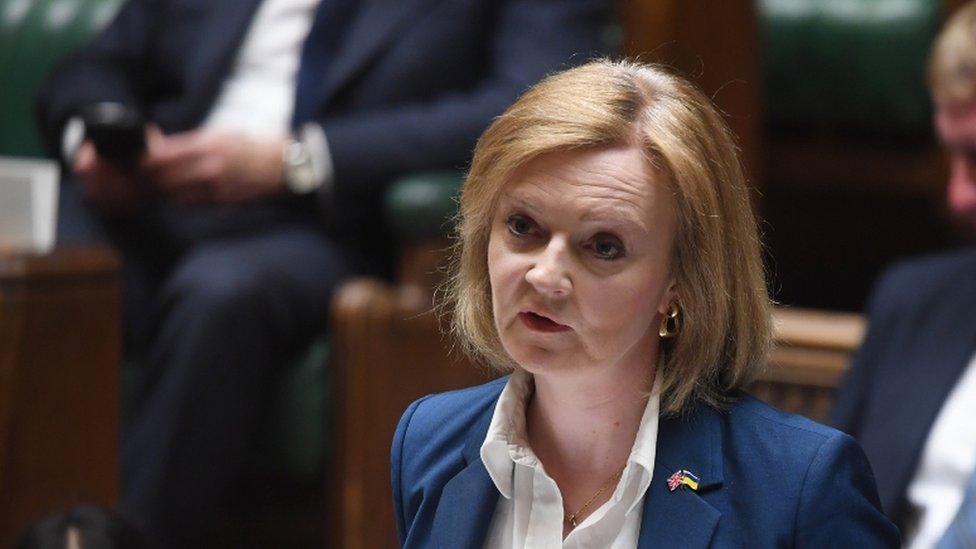NI Protocol analysis: A fifth summer of Brexit talks looms
- Published
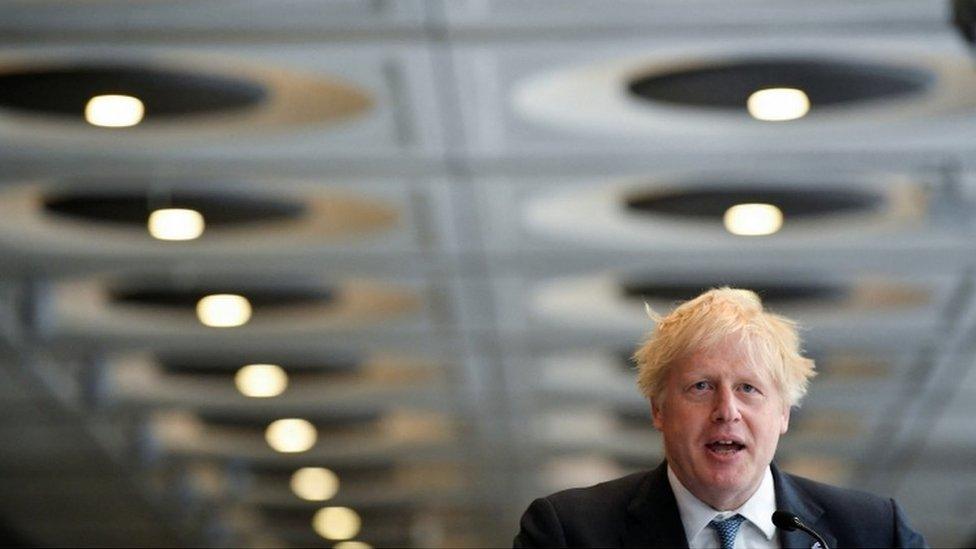
Prime Minister Boris Johnson said he wanted the protocol his government negotiated with the EU to be fixed, not nixed
When Boris Johnson visited Belfast in 2018 he was in bombastic form.
He told the Democratic Unionist Party (DUP) conference that Theresa May's Brexit deal needed to be "junked" because it was going to leave Northern Ireland as "an economic semi-colony of the EU".
This week, Mr Johnson chose a different tone as he spoke about his Northern Ireland Protocol saying it could be "fixed, not nixed".
That was echoed by Foreign Secretary Liz Truss on Tuesday when she said: "I want to be clear that this is not about scrapping the protocol. Our aim is to deliver on all the protocol's objectives."
But this considered language belies the fact that the government is still proposing fundamental changes to the deal.
The choice they have served up to the EU is: dramatically move your negotiating position or we will override the treaty in domestic law.
The changes being proposed are not new. They were first floated in Lord Frost's 'command paper', external of July 2021.
Effectively, that was a plan to entirely flip the logic of the protocol.
Green and red lanes
Rather than prioritising the risk that non-conforming goods from Great Britain could end up in the EU's single market or customs union, Lord Frost proposed an arrangement where the assumption would be that most goods entering Northern Ireland would be staying there.
A simple self-certification process would mean that most goods would not need to be checked or subject to additional paperwork.
That idea returned on Tuesday, although this time with the addition of "green lanes" for goods staying in Northern Ireland and "red lanes" for those which could be moving on.
Also back was the concept of a "dual regulatory regime", meaning goods made to UK standards could be sold in Northern Ireland alongside those made to EU standards.
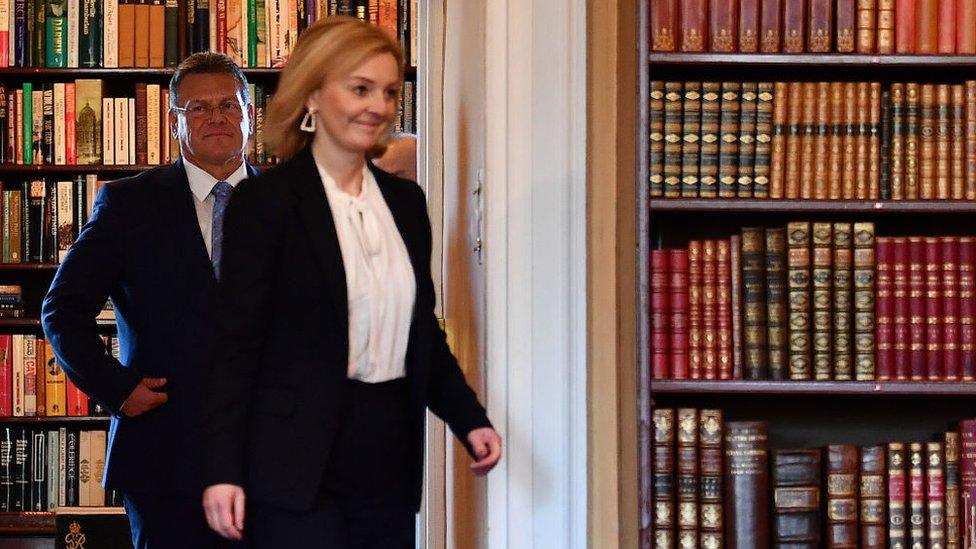
Maroš Šefčovič and Liz Truss have been negotiating over the future of the NI Protocol
The role of the European Court of Justice (ECJ) was on the agenda too, in a slightly coded form which referred to bringing the protocol's oversight into line "with international norms".
On the idea of light touch treatment for NI-remaining goods, the EU and UK are closer to agreement than they were this time a year ago.
That is because the EU's October proposals for easing the impact of the protocol acknowledged that goods which are staying in Northern Ireland should have fewer checks.
The EU's chief negotiator Maroš Šefčovič even referred to the concept of an "express lane", which is not a million miles away from the green lane/red lane idea.
But despite this broad conceptual agreement and months of negotiation, the two sides have not been able to turn this into a deal.
'Large gaps'
Ireland's Foreign Minister Simon Coveney has held out the hope that there is still productive talking to be done in this area, a view shared by some in the Northern Ireland business community.
However, on those other issues like dual regulation and the role of the ECJ there are still very large gaps.
The EU has not even countenanced negotiating on the role of the ECJ, although last year well-sourced media reports suggested the UK could accept a sort of arms length arrangement for the court.
It is not yet known what exactly the UK is proposing on that now because we still await the draft legislation.
Meanwhile, the EU is signalling that the wider Brexit deal, the Trade and Cooperation, will be under threat if the UK eventually puts its unilateral plans into law.
That is all a long way off. It now looks like we're about to enter our fifth summer of Brexit negotiations.
Related topics
- Published13 October 2021
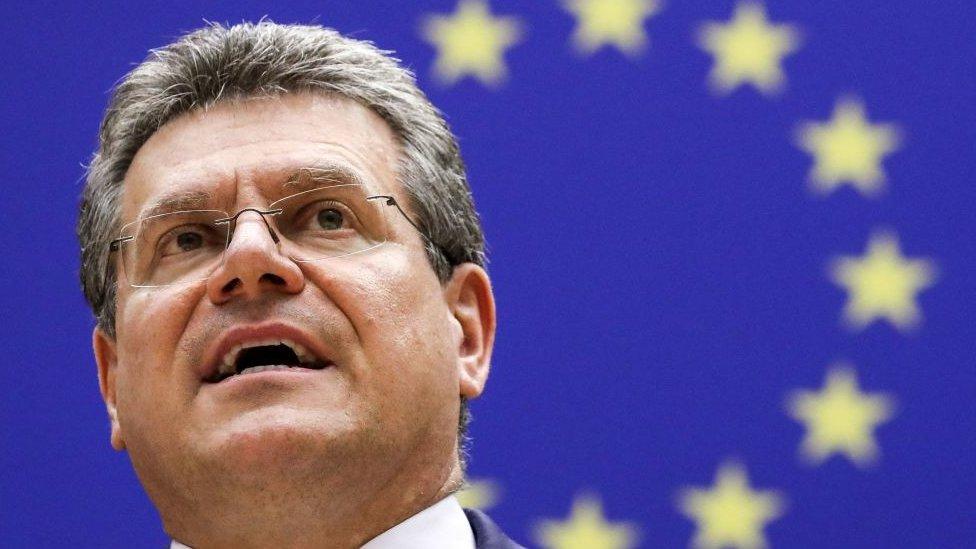
- Published17 December 2021
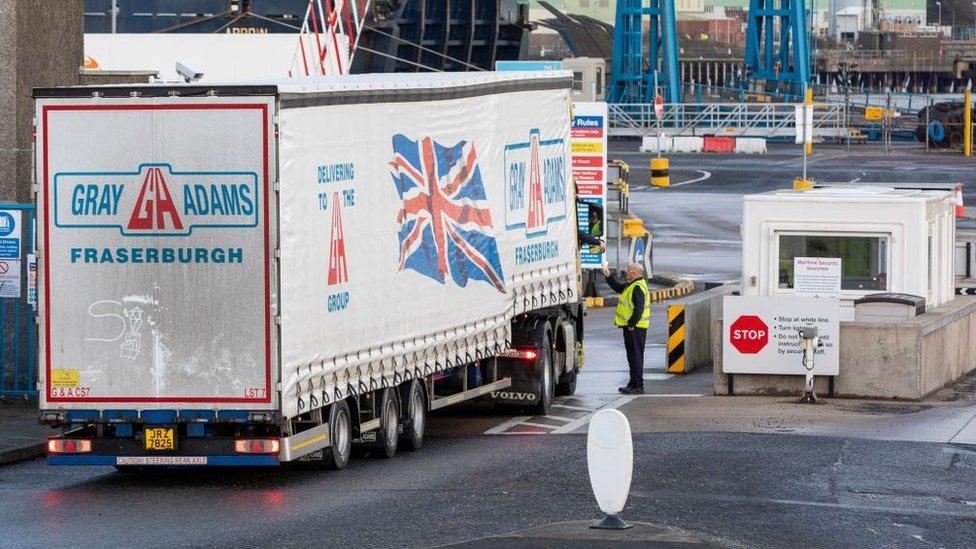
- Published2 February 2024

- Published17 May 2022
